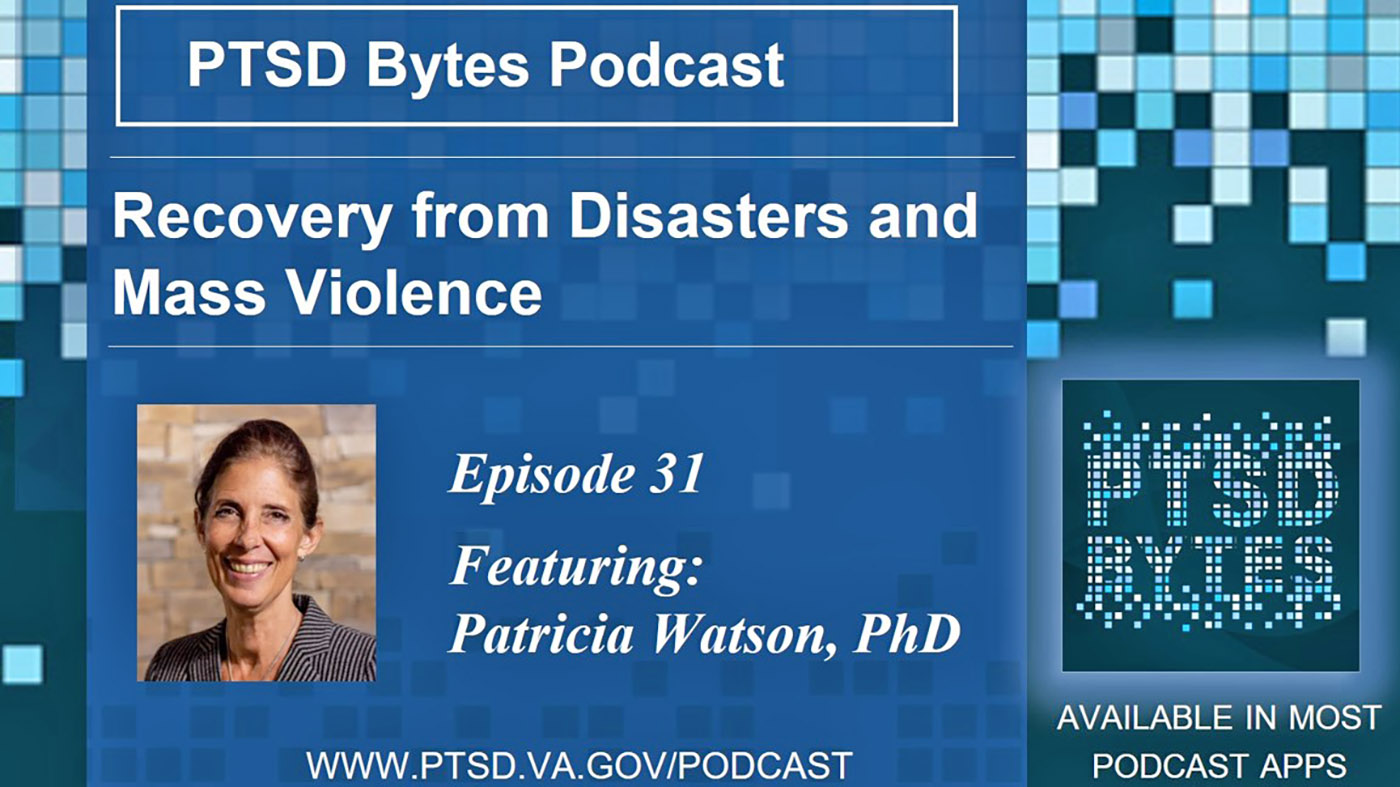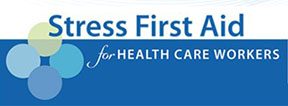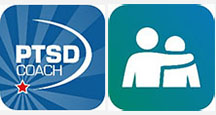In this episode of the PTSD Bytes podcast, host Dr. Colleen Becket-Davenport discusses mental health after disasters and mass violence with Dr. Patricia Watson, a clinical psychologist at the National Center for PTSD and consultant with the VA PTSD Consultation Program.
Defining disasters and mass violence
Disasters are defined as large-scale events that cause loss of life and property, and they can be split into two categories: natural disasters and mass violence. Natural disasters include hurricanes, floods, wildfires, earthquakes and droughts; mass violence refers to human-caused disasters, such as shootings and acts of terrorism.
People can have different reactions to disasters, and different types of disasters can cause different mental health symptoms. The most common post-disaster mental health problems include depression, anxiety, PTSD, increases in alcohol and/or drug use, unstable mood, problems falling asleep, and fear and grief during anniversaries of the event.
Survivors also commonly experience physical symptoms, such as stomach aches or headaches. In addition, large-scale catastrophic events can change the way people look at the world. This can cause feelings of vulnerability, distrust in others, isolation and a decreased sense of control.
First responders may also develop similar symptoms, as they are the people directly impacted by the disasters. They tend to have more numbing symptoms, such as diminished interest in things they used to enjoy or feeling cut off from other people. They may have improved positive coping skills due to their years of experience and sense of purpose in helping a community.
Treatment options
Stress reactions after a disaster are normal, and there is no one “right way” to manage trauma. Treatment immediately after the event generally focuses on establishing safety and connecting you to social support. Options for longer-term treatment include:
- Skills for Psychological Recovery builds problem-solving skills and incorporates rewarding or meaningful activities into your daily schedule.
- Cognitive Behavioral Therapy for Post-Disaster Distress teaches you core skills, such as breathing retraining and helps you challenge unhelpful thoughts.
- The National Center for PTSD’s Stress First Aid program is where health care workers support each other by identifying stress reactions and ways to help reduce the severity of these reactions.
If a loved one has lived through a recent trauma, they may want to talk or they may ask to be given space. The most important thing is to let them know that you care and remind them that they’re not alone. This could be through a text, an email or a phone call without pressuring them to respond.
Mobile apps for self-help
In addition to counseling, there are many ways to cope with the effects of disasters and mass violence on your own. The National Center for PTSD offers mobile apps like PTSD Coach and PTSD Family Coach that can help you learn strategies to calm down, manage trauma reminders or sleep issues, and strengthen your relationships with loved ones.
Additional links:
- The Disaster Distress Helpline can be reached at 1-800-985-5990 or online.
- More information about recovering after disasters offered by the National Center for PTSD.
- More PTSD Bytes episodes.
If you are a Veteran who is experiencing a crisis or supporting a loved one who is, call 988 and press 1 for immediate assistance, or chat online at VeteransCrisisLine.net/chat.
Topics in this story
Link Disclaimer
This page includes links to other websites outside our control and jurisdiction. VA is not responsible for the privacy practices or the content of non-VA Web sites. We encourage you to review the privacy policy or terms and conditions of those sites to fully understand what information is collected and how it is used.
More Stories
Bob Jesse Award celebrates the achievements of a VA employee and a team or department that exemplifies innovative practices within VA.
The Medical Foster Home program offers Veterans an alternative to nursing homes.
Watch the Under Secretary for Health and a panel of experts discuss VA Health Connect tele-emergency care.








